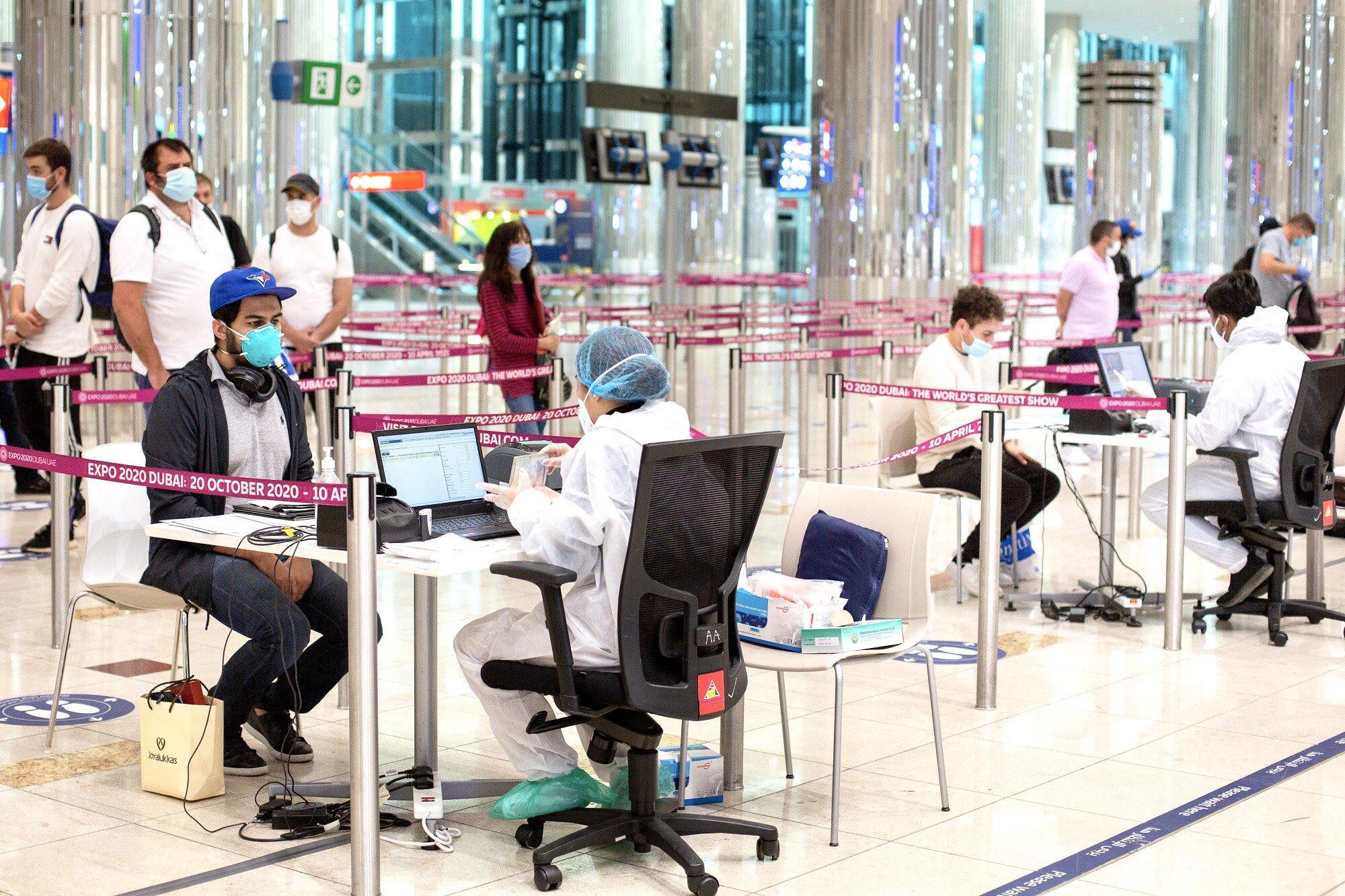
The CEOs of Dubai and London Heathrow airports believe bilateral testing trials could set the scene for a more unified response to COVID, while Amsterdam Schiphol’s CEO warned that the current status quo must not be normalized.
Speaking at the World Aviation Festival Virtual on Sept. 23, Dubai Airports CEO Paul Griffiths called for a convergence of COVID-19 control measures, including pre-flight testing, to make travel “more practical” and get industry back on its feet.
However, he said politicians are juggling three opposing challenges—public health, the economy and social pushback—which are higher priorities than a coordinated international response.
“Politicians are probably not motivated to look to an international protocol as early as we would like,” Griffiths said.
While Dubai itself has made “good early progress” with testing, Griffiths pointed out that every flight has a departure and arrival airport. “The problem is you need a dance partner.”
“Hopefully, John [Holland-Kaye, Heathrow Airport CEO] and I can reach agreement for Dubai and Heathrow on how it should be done,” Griffiths said. The airports could then seek political consensus.
“Paul is exactly right and I think all of us are aligned on the idea,” Holland-Kaye replied. “Pre-journey testing is by far the best way of getting as close back to normal travel as we can. The fact that we can all agree on that is a good start.”
Holland-Kaye urged airlines and airports to come together on a preferred approach, secure private sector buy-in, and then promote the solution to governments.
In addition to teaming up with Dubai, Holland-Kaye said Heathrow is also looking to cooperate with New York JFK on COVID testing trials. This could lead to wider EU and U.S. take-up.
“This would probably be enough to get the world moving again, in the absence of an ICAO agreement. But it also makes it more likely that we will get ICAO agreement,” Holland-Kaye said.
He acknowledged that the exact detail of the unified measures—such as the test type and lead time before travel—might take a while to figure out. “If we can get to ‘yes,’ then we can work though those details,” he said.
The idea of bilateral trials, which could later be expanded, was also supported by Royal Schiphol Group CEO Dick Benschop. “I see this on the agenda of airlines and airports. This topic is the most important that we are dealing with,” the Amsterdam airport head said.
Above all, Benschop stressed that the industry must not agree to live with the current patchwork of travel bans and quarantines. “This situation for air travel is not a new normal,” he said. “Without any change, it will be very difficult,”
World Travel & Tourism Council (WTTC) CEO Gloria Guevara Manzo observed that COVID-19 started as a health crisis, but it is now evolving into a social crisis.
Over 121 million jobs have already been impacted and this could increase to 197 million by year-end, in the absence of a more coordinated response. “Unfortunately, we are getting into the worst-case scenario,” she said.
Like Griffiths and Holland-Kaye, Guevara Manzo supports the idea of bilateral COVID testing trials as a way to get the industry moving again. “It is cheaper to invest in testing than to provide stimulus for all the jobs that have been impacted.”
She suggested that health officials could shortcut the learning process by looking back to security coordination in the wake of 9/11.
“We’re seeing a very similar impact to 9/11. Every country is looking after their own and implementing their own protocols,” she said.
“What 9/11 was for security officials, COVID is for health officials. It’s taken years, but the lessons learned could be shared with the medical community.”
Guevara Manzo believes that an agreement among the Group of Seven (G7) major developed countries—Canada, France, Germany, Italy, Japan, the UK and the U.S.—plus three other major leaders would move things along.
She also flagged two pivotal EU meetings on Sept. 27-28, where transport and tourism minister will meet, as a potential turning point.
“I think the next couple of weeks will be crucial. It is not an easy task, but I hope we will get some traction,” Guevara Manzo said.





